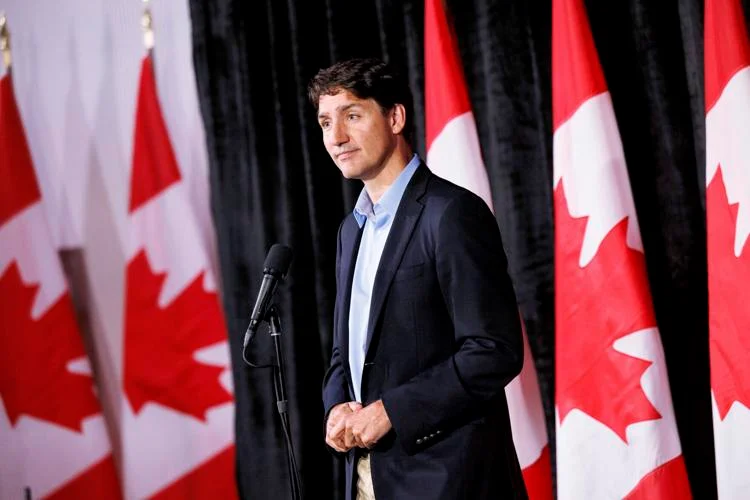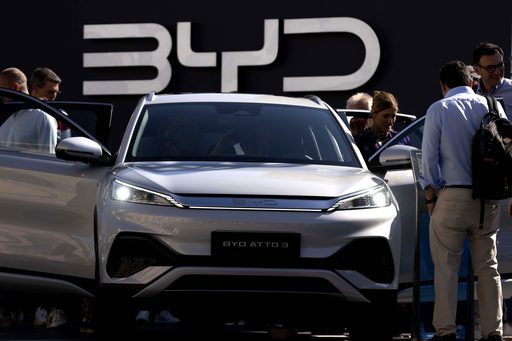OTTAWA, Canada – The Canadian government announced Monday it will impose a 100% tariff on imports of Chinese-made electric vehicles (EVs), mirroring similar measures taken by the United States. The decision comes in response to what Western governments describe as unfair Chinese industrial subsidies.

Prime Minister Justin Trudeau unveiled the new trade policy following discussions with U.S. National Security Advisor Jake Sullivan, who met with Canadian officials on Sunday. “Actors like China have chosen to give themselves an unfair advantage in the global marketplace,” Trudeau stated.
In addition to the EV tariff, Canada will implement a 25% duty on Chinese steel and aluminum imports. Deputy Prime Minister Chrystia Freeland announced a 30-day consultation period to consider potential tariffs on Chinese batteries, battery parts, semiconductors, critical minerals, metals, and solar panels.
The tariffs could significantly impact Tesla, which imports Chinese-made vehicles to Canada from its Shanghai factory. However, the U.S. automaker could potentially avoid the tariff by shifting supply to its U.S. or German facilities.
While Chinese EV brands have yet to establish a significant presence in Canada, industry giant BYD has recently set up a Canadian corporate entity and expressed intentions to enter the market as early as next year.
U.S. President Joe Biden implemented similar tariffs on Chinese goods in May, citing concerns that Chinese government subsidies allow companies to sell products at artificially low prices. Chinese EVs can retail for as little as $12,000, while the country’s steel, aluminum, and solar cell production capacity can meet a substantial portion of global demand.

The Chinese Embassy in Canada criticized the move as “typical trade protectionism” that violates World Trade Organization rules. The embassy warned it would take “all necessary measures” to protect Chinese enterprises’ interests.
Former Canadian Ambassador to China, Guy Saint-Jacques, suggested Canada’s decision was influenced by its economic ties to the U.S., noting that over 75% of Canadian exports go to its southern neighbor. He warned that China might retaliate against other Canadian industries, potentially targeting barley and pork exports.
As tensions rise, U.S. National Security Advisor Jake Sullivan is set to visit Beijing on Tuesday, where Chinese officials are likely to raise concerns about the American tariffs amid ongoing efforts to revitalize China’s post-pandemic economy.
The Canadian government’s decision underscores the complexities of navigating international trade relationships, particularly as countries seek to balance economic interests with concerns over fair competition and industrial policy.



